 Get
Get
Sri Lankan Rupees Fast!
- Free home delivery over £750
- with Royal Mail Special Delivery 1pm
- Better rates than the banks
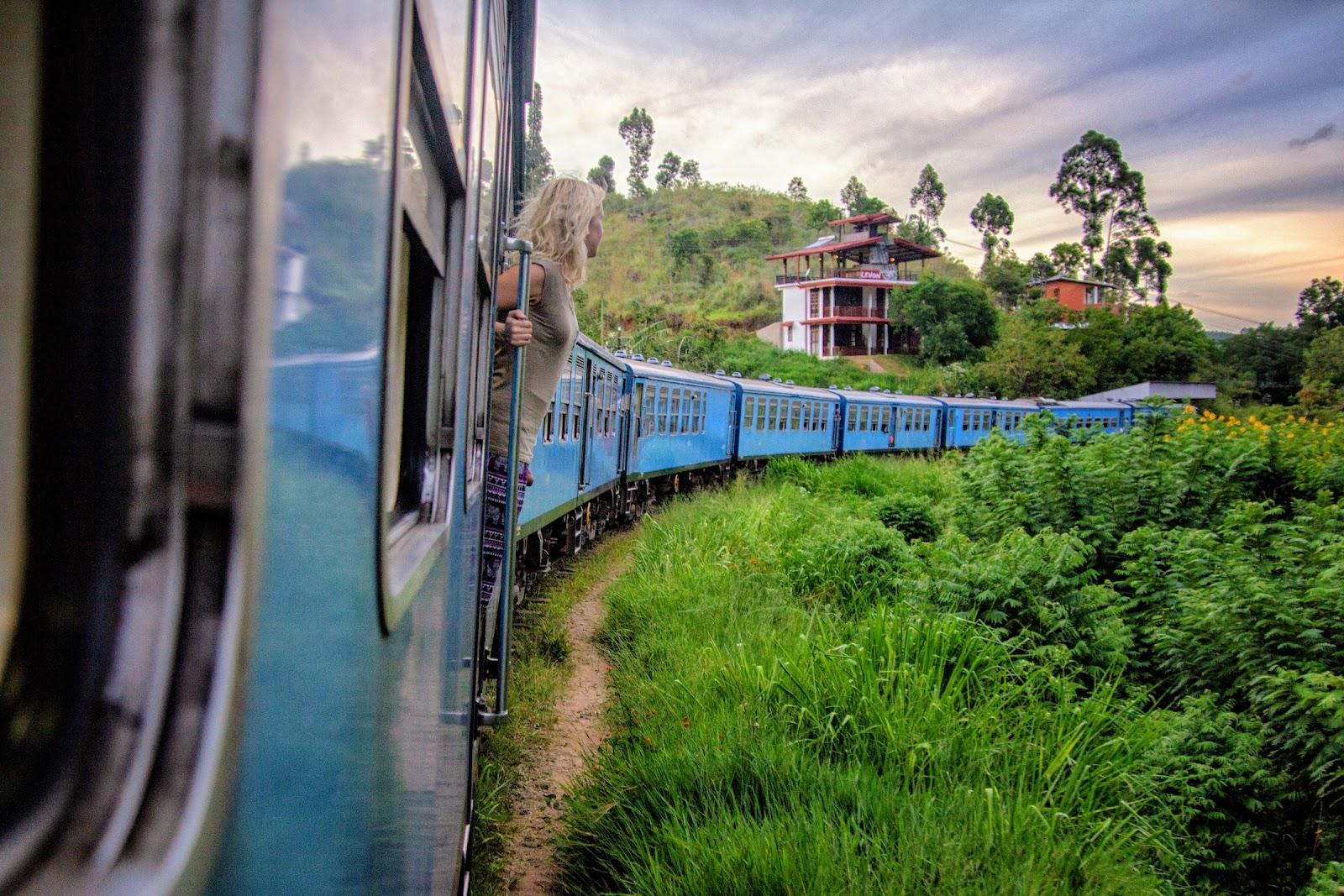
Travelling to Sri Lanka?
Get the best rates for Sri Lankan currency online
Prepare for your Sri Lankan journey with Manor FX. Get the best gbp to Sri Lanka rupee exchange rates online, giving you more Sri Lankan rupees for a fantastic trip.
Opt for secure delivery to your home or workplace or pick up at our bureau near Heathrow. Our quick, convenient online ordering system simplifies getting your Sri Lankan rupees. Convert pounds to Sri Lankan rupees with Manor FX.
Sri Lankan travel money
Planning to relax on the stunning beaches of Sri Lanka or venture into its lush rainforests? Let’s get you ready with some valuable Sri Lanka travel advice about currency and card payments in Sri Lanka.
Where can you get Sri Lankan rupees?
Unlike major currencies like the GBP or the euro, the Sri Lankan rupee (the currency of Sri Lanka) is less widely available, so you won’t find it at banks or post offices.
Can you buy Sri Lankan rupees in the UK?
Yes. You can buy Sri Lankan rupees online from currency providers like us! We have the best exchange rate, pound to Sri Lankan rupee online. Why not avoid the costly airport exchange and have your Sri Lankan rupees delivered right to your door before your trip?
Experience effortless currency exchange with Manor FX. Enjoy a straightforward ordering process and competitive rates, ensuring you have more money for your Sri Lankan adventure. If you’re near Heathrow, you can also visit our bureau for the same great rates.
Should I exchange money before I travel to Sri Lanka?
Yes, it’s a good idea to exchange some money before you travel to Sri Lanka. This way, you’ll have local currency (Sri Lankan rupees) on hand for immediate expenses like transportation, meals, and small purchases upon arrival.
What is the best currency to bring to Sri Lanka?
The Sri Lankan rupee (LKR) is your best option when travelling to Sri Lanka. It’s the official currency and widely used.
While some countries in South Asia may accept US Dollars, it’s not guaranteed, and you might encounter exchange rates that are less favourable. Stick to Sri Lankan rupees for a smooth and cost-effective journey.
Can I use my bank card in Sri Lanka?
Most stores in Sri Lanka do not accept international card payments. However, many international hotels, upscale boutiques, large shopping centres, and major supermarkets in Colombo accept international credit or debit cards.
Sri Lanka has introduced contactless payments. When you see the contactless symbol, you can purchase up to 5,000 LKR by tapping your card on the reader. For higher amounts, you will need to enter your PIN code.
If you plan to use your card in Sri Lanka, be mindful of currency conversion fees and bank charges. Your bank’s exchange rate from LKR to GBP may not be favourable, as banks profit from this.
It’s wise to contact your bank before using your card for payments in Sri Lanka. This prevents suspicious international transactions from blocking your card.
Should I use cash in Sri Lanka?
Carrying cash in Sri Lanka is crucial for various transactions. We strongly advise having Sri Lankan Rupees (LKR) on hand during your journey.
Cash is handy for making purchases at local stores, dealing with street vendors and covering taxi fares. As well as using public transportation, offering tips, exploring markets, and dining at local eateries.
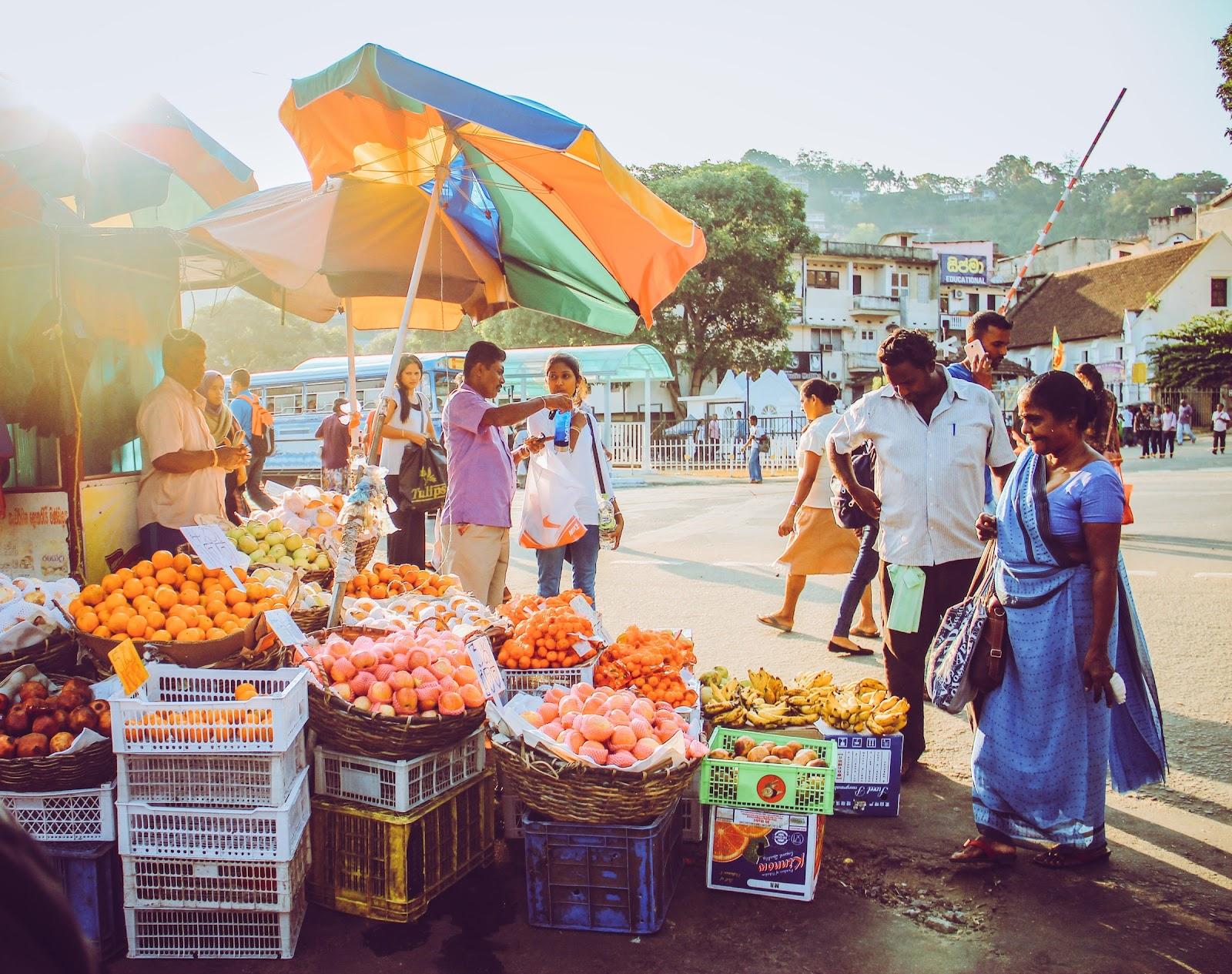
Is it better to use cash or credit card in Sri Lanka?
When you’re in Sri Lanka, having some cash with you is a good idea. Many places in Sri Lankan cities accept credit and debit cards. Vendors such as taxi drivers, street vendors, and local tour guides often prefer cash for transactions.
Don’t forget to exchange any remaining Sri Lankan rupees for GBP when you return from your trip.
Buy your rupees now
How much cash should I take to Sri Lanka?
Sri Lanka offers diverse experiences for travellers, and your expenses can vary depending on where and when you visit. You’ll find that bustling urban hubs such as Colombo and Kandy often have a higher price tag. Venturing into enchanting, off-the-beaten-path locales like Ella or Galle can be a budget-friendly alternative.
Here’s a guide for travellers:
Budget-friendly travel:
- Daily budget: Plan to spend around 4,000 to 5,000 Sri Lankan rupees (approximately £20-£25) per day for a budget-friendly experience.
- This budget covers essentials like a comfortable hostel, delicious local meals, transportation, and daily activities. Allowing you to enjoy your journey without overspending.
Mid-range comfort:
- Daily budget: If you prefer a more comfortable adventure, budget approximately 8,000 to 10,000 Sri Lankan rupees (around £40-£50) per day.
- This allows you to savour local cuisine, explore exciting activities like tea plantation tours and hikes, and stay in mid-range accommodations.
Luxurious exploration:
- Daily budget: For a luxurious Sri Lankan holiday, consider setting aside about 20,000 to 25,000 Sri Lankan rupees (roughly £100-£125) per day.
- This budget provides access to boutique hotel accommodations, seamless travel between cities, and a wide range of captivating tours and experiences.
A Friendly Note: Remember that prices in Sri Lanka may rise significantly during major festivals and events. It’s wise to plan ahead to navigate potential increases in accommodation and activity costs.
Your Sri Lankan travel experience can be enjoyable without straining your budget. With careful planning and a taste for local adventures, you can make the most of your journey while staying within your financial comfort zone. Explore the rich culture and natural beauty of Sri Lanka to the fullest!
How can I avoid ATM fees in Sri Lanka?
Avoid ATM fees in Sri Lanka with these suggestions:
- Choose major Sri Lankan banks: Opt for ATMs from major Sri Lankan banks. Like Commercial Bank, Hatton National Bank, and Sampath Bank for lower or no fees.
- Larger withdrawals: To minimise the frequency of ATM visits and fees, consider withdrawing larger amounts at once.
- Check with your home bank: Contact your home bank before your trip. To inquire about partnerships with banks in Sri Lanka that offer free ATM usage for their customers.
- Currency exchange preparation: To avoid excessive ATM usage, consider exchanging Sri Lankan currency before your journey with Manor FX. They offer competitive rates and doorstep delivery, ensuring you have Sri Lankan rupees on hand.
- Local bank ties: Research if there are any local banks in Sri Lanka that have ties or partnerships with your home bank. This can provide you with convenient ATM options during your stay.
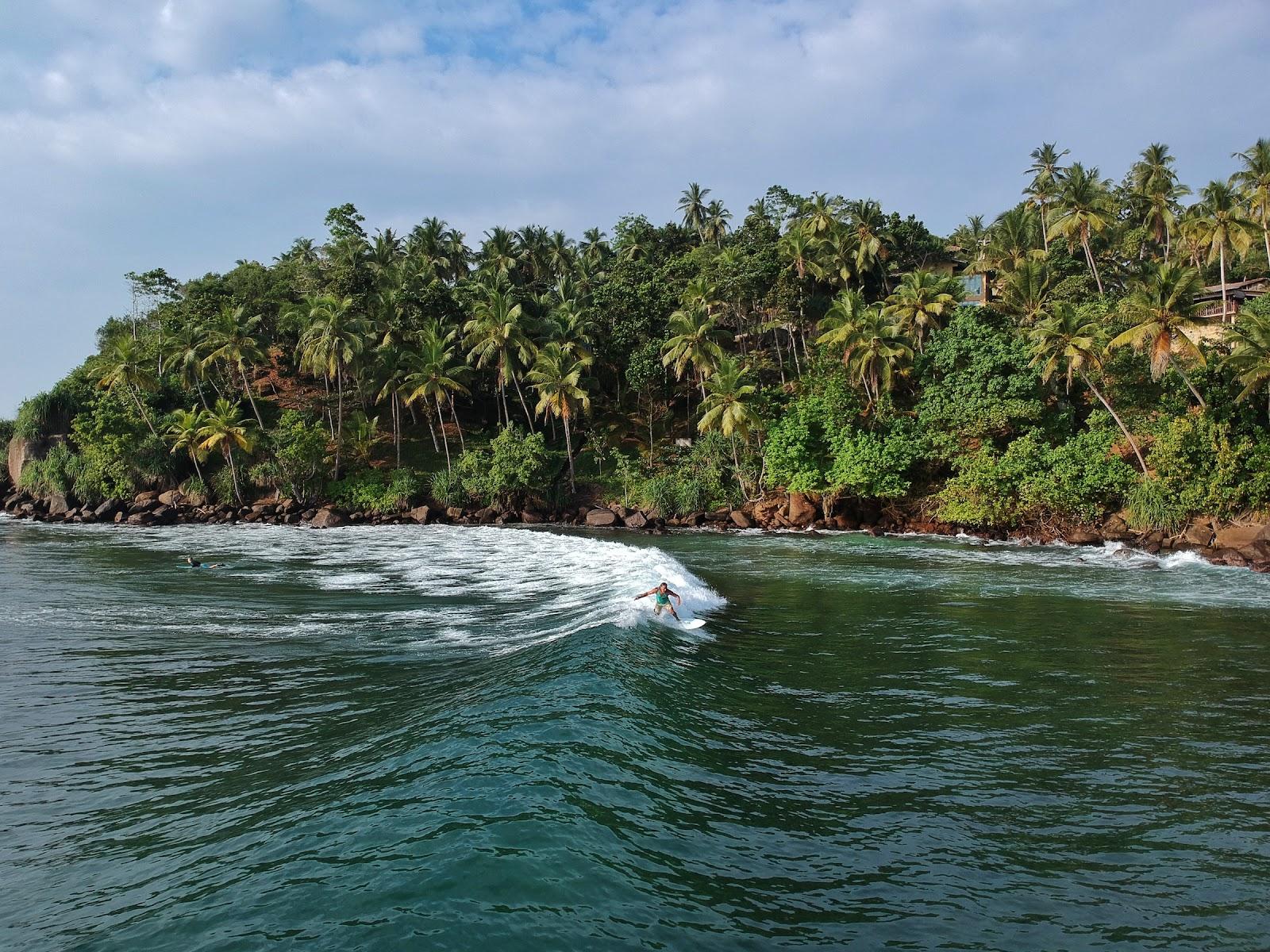
Is life expensive in Sri Lanka?
In Sri Lanka, prices are notably lower than those in the UK, with the cost of living averaging about 50% less.
For example, enjoying a cup of coffee in a café typically sets you back around 300-400 Sri Lankan rupees (approximately £1.50-£2).
When it comes to dining in Sri Lanka:
- Budget-friendly eateries: At affordable restaurants, you can anticipate spending roughly 20,000 to 40,000 Sri Lankan rupees (£4 to £8).
- Mid-range dining: For a three-course meal at a mid-range restaurant, the cost typically ranges from 60,000 to 120,000 Sri Lankan rupees (£12 to £24). Remember that prices in popular cities like Colombo or Kandy may be slightly higher.
- Upscale seafood experiences: Seafood lovers will delight in upscale seafood restaurants. Where dishes can range from 80,000 to 160,000 Sri Lankan rupees (£16 to £32). These coastal establishments often serve generous portions, perfect for sharing with a dining companion.
How does tipping work in Sri Lanka?
Tipping in Sri Lanka is a common and appreciated way to show gratitude for good service. Here’s a simple guide to tipping:
When dining at restaurants in Sri Lanka, it’s customary to show appreciation by leaving a tip, typically around 10% of the total bill. Be aware that some upscale or tourist-focused places might include a service charge. So it’s a good practice to review your bill.
In bars, a common practice is to express gratitude for the service by leaving a small change or rounding up the bill as a tip. The staff appreciates this simple gesture, which acknowledges the service provided.
Taxis: When taking a taxi in Sri Lanka, consider rounding up the fare as a tip. For example, if the fare is 1,750 Sri Lankan rupees, rounding it up to 1,800 Sri Lankan rupees is a friendly gesture. If the driver goes the extra mile, such as assisting with luggage or providing exceptional service, the staff appreciates an additional tip.
Hotels: It’s a considerate gesture to leave a tip for hotel staff during your stay. Tipping practices in Sri Lanka can vary. But a common guideline is to offer a standard tip ranging from 500 to 1,000 Sri Lankan rupees.
Showing appreciation for your guide’s service by offering a tip is considered polite during guided tours. Tipping is a way to express gratitude for the excellent service you receive throughout your journey in Sri Lanka, ensuring your appreciation is well-received
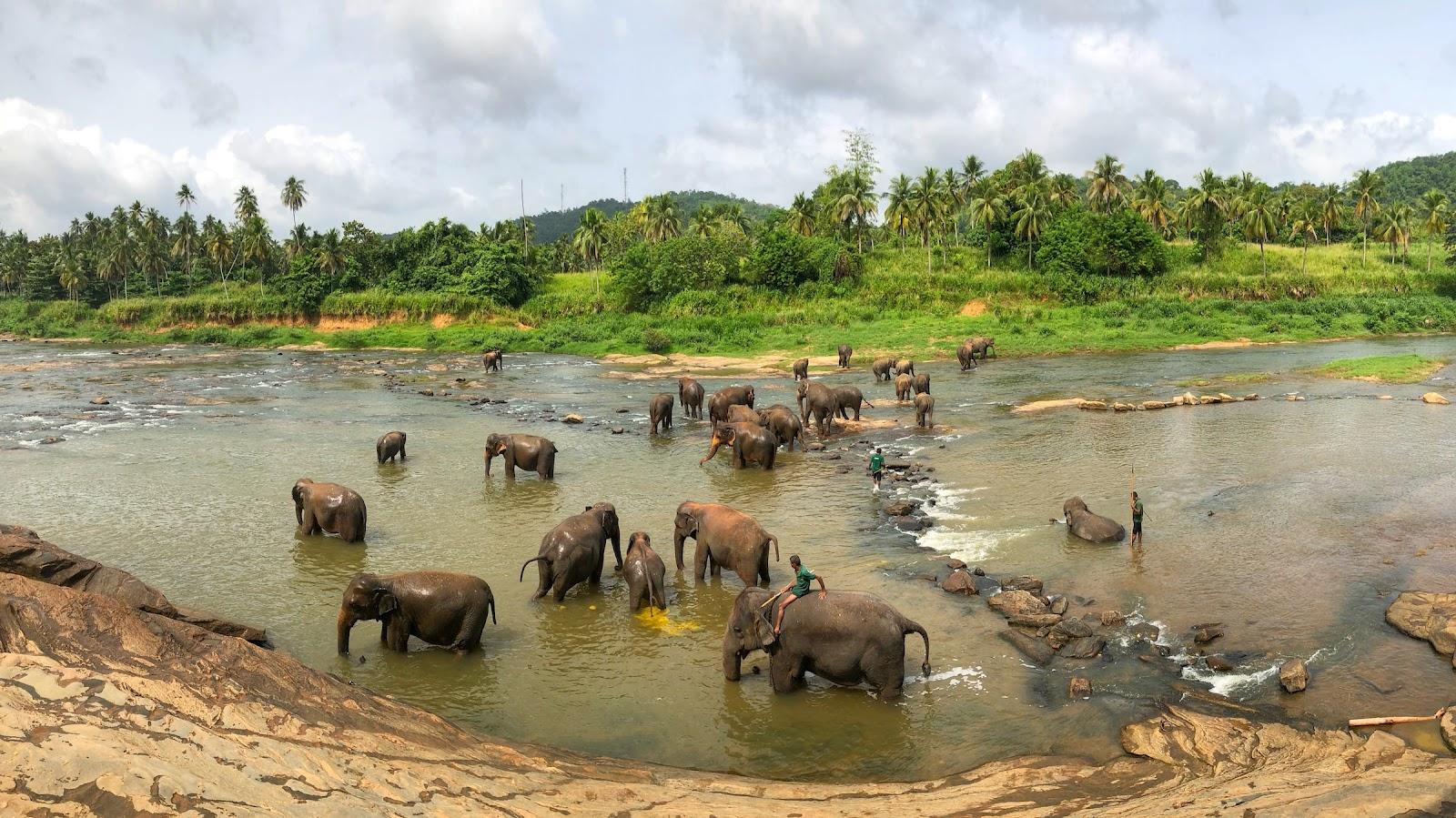
Is it rude not to tip in Sri Lanka?
While tipping is appreciated, choosing not to tip in every situation is not considered rude. However, showing appreciation for good service during your stay in Sri Lanka is a kind and respectful practice.
Is Sri Lanka cheap for tourists?
Absolutely! Sri Lanka offers excellent value for travellers with various budgets. Here’s a brief overview:
Sri Lankan delights:
- Local cuisine: Relish local cuisine with dishes like rice and curry for as little as 200 to 500 Sri Lankan rupees (approximately £1-£2.50).
Budget-friendly transportation:
- Public transport: Public buses and trains are budget-friendly ways to travel across the island. Fares can be as low as 50 to 200 Sri Lankan rupees (about 25p to £1).
Natural beauty accessible to all:
- Natural attractions: Many of Sri Lanka’s breathtaking natural wonders and pristine beaches have affordable or no entrance fees.
In summary, Sri Lanka warmly welcomes travellers with various budgets. With some savvy planning, you can enjoy an incredible Sri Lankan adventure without exceeding your budget.
Is Sri Lanka safe for tourists?
It’s complicated. It’s important to exercise increased caution when considering travel to Sri Lanka due to civil unrest and the threat of terrorism.
Sri Lanka has experienced terrorist attacks in the past. These have targeted various public areas, including tourist locations, transportation hubs, markets, shopping malls, government facilities, hotels and restaurants. The threat of such attacks remains a concern.
When travelling in Sri Lanka, stay vigilant and aware of your surroundings, especially in tourist locations and crowded public venues. Follow the instructions of local authorities. Monitor local media for updates, and be prepared to adjust your plans based on the latest information.
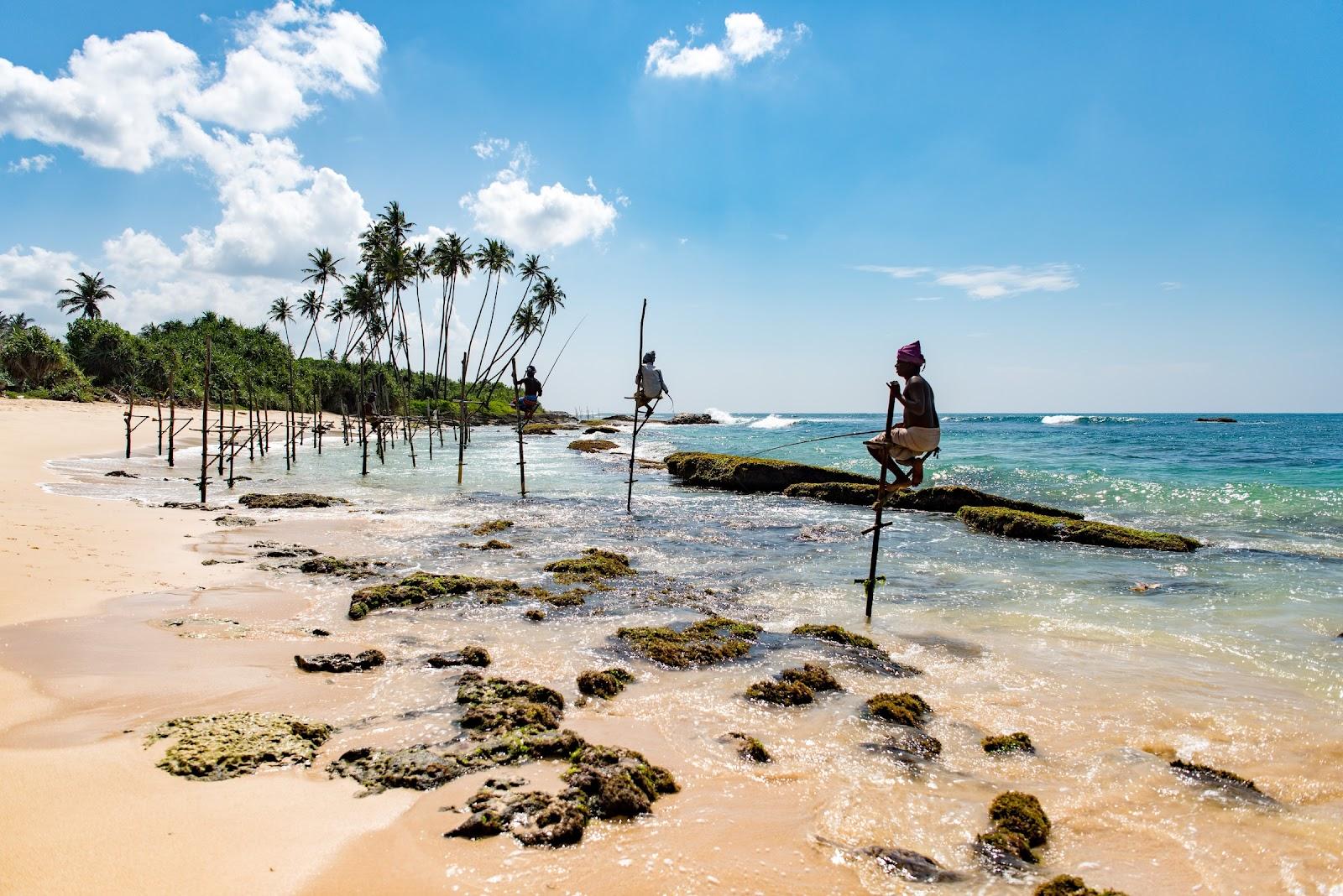
Buy your rupees now
Sri Lankan Currency:
Banknotes in Sri Lanka
Sri Lankan banknotes are available in different denominations, showcasing notable figures from the country’s history, scenic landscapes, and cultural icons.
You will commonly find 1,000, 2,000, 5,000, 10,000, 20,000, and 50,000 Sri Lankan rupee banknotes in circulation. When dealing with currency, exercise care to prevent damage or the acceptance of counterfeit banknotes.
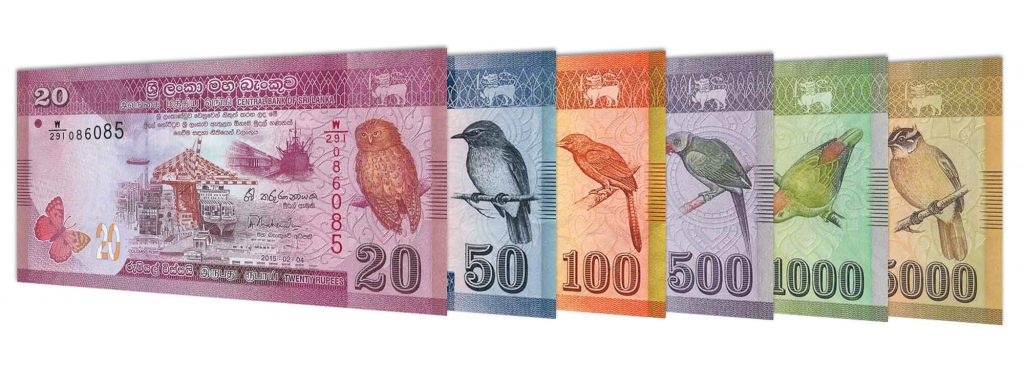
Coins in Sri Lanka
Sri Lankan coins come in various denominations, ranging from 50 centavos (0.50 pesos) to 1,000 pesos. One side of these coins features national symbols, while the other side indicates their denomination and the year of minting.
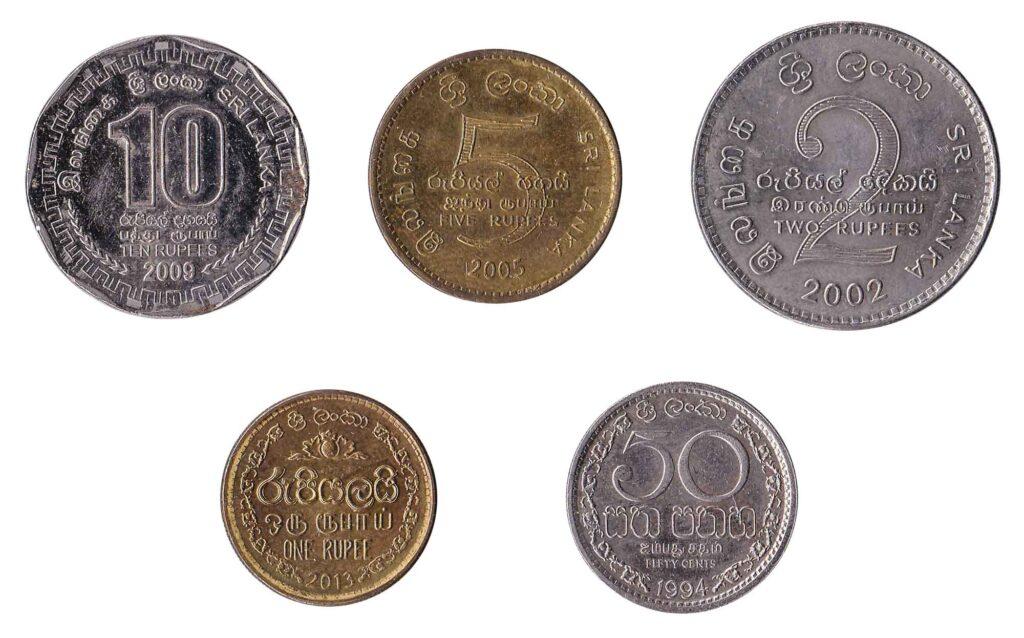
Exercise caution when dealing with coins to verify their authenticity and condition, safeguarding against counterfeit currency.
Sri Lanka’s currency import and export regulations
New currency rules in Sri Lanka from Jan 2024
Importing currency into Sri Lanka
If you have more than GBP 11,000 (or its equivalent) in cash or monetary instruments, you’ll need to declare it.
Exporting currency out of Sri Lanka
When you’re leaving, if you’re carrying over GBP 7,400 in cash or monetary instruments, make sure to declare it.
Ordering Sri Lankan rupees online
Exchange UK pounds to Sri Lankan rupees through Manor FX and have them delivered swiftly and securely to your home or office with Royal Mail Special Delivery Guaranteed®.
You can also pick up your currency from our Manor FX travel money shop near Heathrow. Click here to buy Sri Lankan rupees online now.
Selling back Sri Lankan rupees
Need to turn your Sri Lankan rupees to pounds? Simply use this link to exchange your leftover currency. Click on the ‘sell currency’ option and specify ‘Sri Lankan rupee (LKR)’.
Manor FX offers favourable rates for your unused Sri Lankan rupees, ensuring you get the most value from your currency exchange.
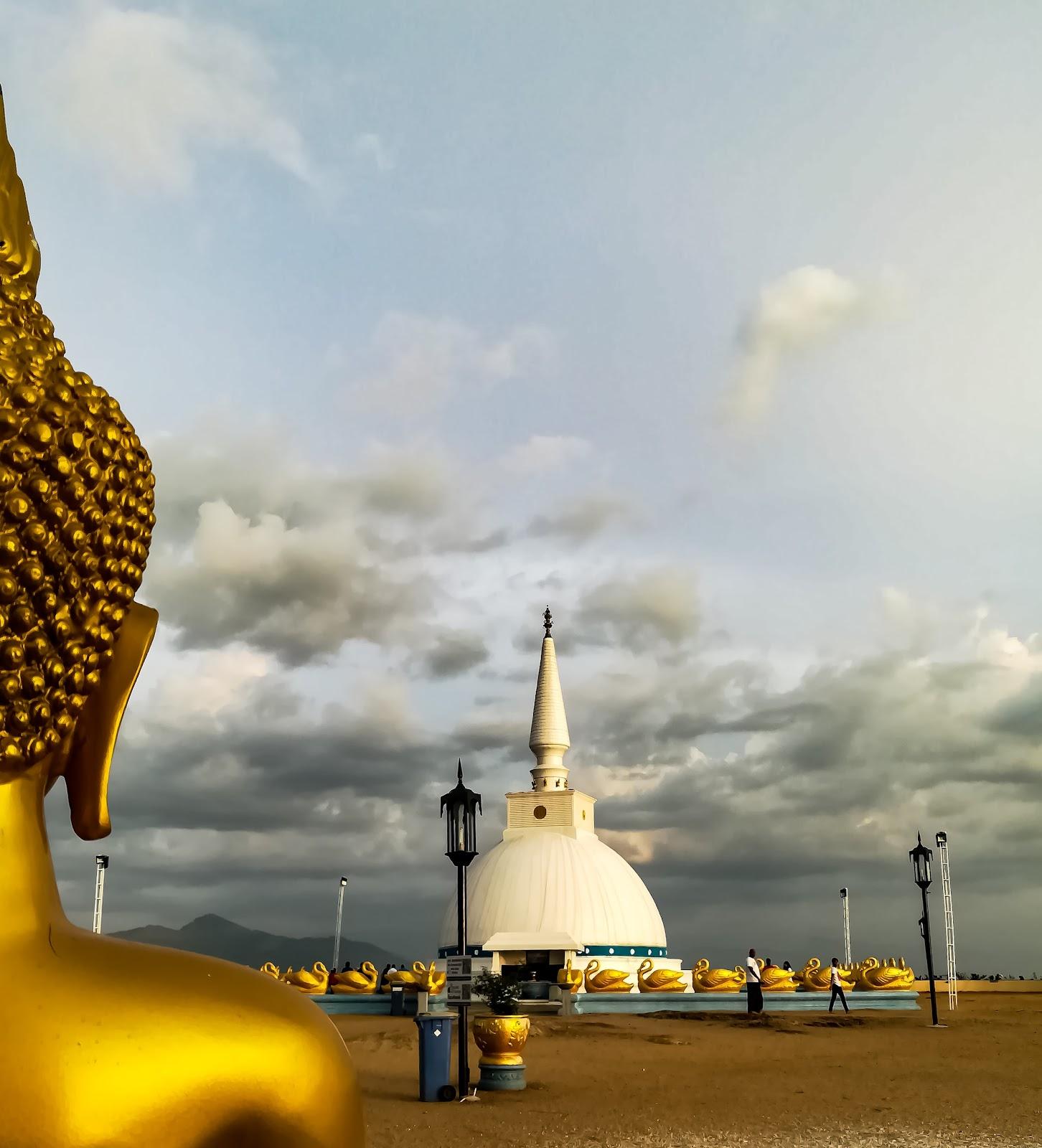
FAQs
Do I need sri lanka tourist visa?
We strongly advise all visitors planning to travel to Sri Lanka to apply for an online Electronic Travel Authorisation (ETA). You can find details on the Department of Immigration and Emigration website.
Visitors can conveniently apply for an ETA through the official ETA website to facilitate this process.
While it is possible to obtain a tourist visa, Sri lanka on arrival upon reaching Sri Lanka. We highly recommend applying for an ETA before embarking on your journey. Doing so ensures a smoother travel experience and minimises potential delays upon arrival.
All visitors must adhere to the guidelines established by the Government of Sri Lanka for tourists during their stay in the country.
Typically, authorities grant tourist visas with a validity period of 30 days. It is imperative to adhere to this timeframe, as overstaying your visa may result in fines or detention by local authorities.
If your visa is nearing its expiration date, you can seek an extension through the Department for Immigration and Emigration. To initiate this process, please contact the Department for Immigration and Emigration at +94 70 710 1050. Or visit their official website for online visa extension applications.
What sri lanka travel vaccinations are required?
While planning your journey to Sri Lanka, it’s essential to consider health precautions and vaccinations. Here’s what you need to know:
Yellow Fever: We highly recommend getting a yellow fever vaccination when travelling to some areas of Sri Lanka, especially at lower altitudes. This vaccine is crucial to meet entry requirements and ensure your safety. Remember to receive it at least ten days before your trip for maximum effectiveness.
Additionally, ensure your routine vaccinations, including MMR, diphtheria, tetanus, and pertussis, are current. These vaccinations are vital to safeguard against common preventable illnesses during your journey.
For added protection during an extended stay, savouring local cuisine, or mingling with the local community, contemplate getting vaccinated against hepatitis A and B. Prioritize your health during your Sri Lankan vacation.
Typhoid: Consider getting a typhoid vaccination if you plan to consume food or water from potentially contaminated sources during your travels. This precaution is particularly important if you intend to explore local cuisine and street food markets.
Remember that vaccination requirements may vary depending on your travel plans and health history. It’s always wise to consult a healthcare professional before your trip to receive personalised advice on vaccinations and health precautions.
Your health and well-being are of utmost importance. Taking the necessary precautions, including vaccinations, will contribute to a worry-free and enjoyable journey to Sri Lanka.
What is the best time of year to visit sri lanka?
When preparing for your journey to Sri Lanka, it’s essential to consider the best time to travel to ensure an enjoyable experience. Sri Lanka boasts diverse climatic conditions due to its location. So, your ideal travel time will depend on your preferences and the regions you plan to explore.
December to March (High Season): This period marks the high season and is the best time to visit Sri Lanka, particularly in coastal areas like Colombo and Galle. You can expect pleasant weather with less rainfall, making it an excellent time for beach vacations and coastal adventures. The best month to visit Sri Lanka is December because it offers pleasant weather, making it ideal for exploring coastal areas and enjoying beach vacations.
April to June and September to November (Shoulder Seasons): These months fall within the shoulder seasons when the weather is generally favourable and tourist crowds are fewer. It’s an ideal time to visit cultural sites and explore cities like Kandy and Dambulla. During these months, you can enjoy milder temperatures and lower chances of rain.
July and August (Peak Season for Cultural Festivals): If you’re interested in immersing yourself in Sri Lanka’s vibrant cultural festivals, plan your visit for July and August. This period includes celebrations like the Kandy Esala Perahera, offering you a unique cultural experience.
May to August (Monsoon seasons in the South and West): These months constitute the rainy season in Sri Lanka’s southern and western regions. If you plan to explore these areas, prepare for more frequent rainfall. Nevertheless, the lush green landscapes during this time can be incredibly picturesque.
The best time to explore Sri Lanka varies based on your interests and the regions you intend to visit. For those who cherish sunny and dry weather, the high season from December to March is tailor-made for coastal getaways. The shoulder seasons are ideal if you seek a more comfortable city climate with cultural experiences minus the crowds. Additionally, if you’re into cultural festivals, aim for a visit in July and August to partake in the festivities.
Are there any sri lanka travel requirements?
Here are the key travel considerations and travel advice for Sri Lanka:
Travel Requirements:
- Passport: Ensure your passport is valid for at least six months beyond your intended departure date.
- Visa: Check Sri Lanka’s visa policy, as most tourists, including UK citizens, typically enjoy visa-free travel for up to 90 days.
- Return or Onward Ticket: Have documentation to prove that you have a return or onward ticket to demonstrate your planned departure from Sri Lanka.
- Vaccination Certificates: Depending on your travel history and point of origin, you may need specific vaccinations, such as yellow fever. Verify if you are arriving from a high-risk area.
- COVID-19 Requirements: Stay well-informed about Sri Lanka’s current COVID-19 entry requirements. These may encompass testing, quarantine, or other health-related protocols.
Sri Lanka Travel Restrictions:
- COVID-19 Measures: Comply with Sri Lanka’s COVID-19 regulations, including mask mandates, social distancing, and any other health precautions in place.
- Regional Variations: Certain regions within Sri Lanka might have unique entry rules or restrictions. It’s advisable to check with local authorities or your accommodation for specific area-specific guidelines.
Keep in mind that travel requirements and restrictions can evolve. It’s crucial to stay connected with the Sri Lankan embassy for the most up-to-date information before starting your journey. Your preparedness ensures a seamless and enjoyable Sri Lanka visit.
The best places to visit in sri lanka
Are you planning a holiday to Sri Lanka and looking for the best places to visit in Sri Lanka? Explore some of Sri Lanka’s most captivating destinations for a memorable and safe journey.
Yala National Park: Experience the thrill of wildlife encounters in Yala National Park, home to diverse flora and fauna, including leopards and elephants.
Arugam Bay: If you’re a surfer or beach lover, Arugam Bay offers some of the best waves and sandy shores on the East Coast.
Nuwara Eliya: Discover the enchanting hill station of Nuwara Eliya, known for its lush tea plantations, cool climate, and scenic landscapes.
Whale Watching: Get up close with majestic whales by embarking on a thrilling whale-watching adventure along Sri Lanka’s coast.
Buddhist Temples: Explore the rich cultural heritage of Sri Lanka by visiting its ancient Buddhist temples, including the iconic Temple of the Tooth in Kandy.
Tuk Tuk Adventures: Embrace the local way of travel by hopping on a Tuk Tuk and navigating through bustling streets and scenic routes.
While enjoying these attractions, ensure a safe and enjoyable trip to Sri Lanka by following local guidelines and taking necessary precautions. With this list your sure to fine awesome places to visit in Sri Lanka.
Feel the Trustpilot love

Great competitive rates & friendly & helpful staff. Easy to order online & collect in person or delivery.

Great, fast and reliable service would certainly use again for my travel needs, as the rates are the best around!

This amazing company have gone above and beyond in getting a large amount of a rare currency across the pond to Ireland.

Great rates and really responsive, friendly customer support, will definitely be using Manor FX again.

Manor FX gave me a better rate than my bank with great customer service, I highly recommend them.

Family run business that’s always super helpful. Manor FX’s rates are always really good as well!
 Get
Get
Sri Lankan Rupees Fast!
- Free home delivery over £750
- with Royal Mail Special Delivery 1pm
- Better rates than the banks